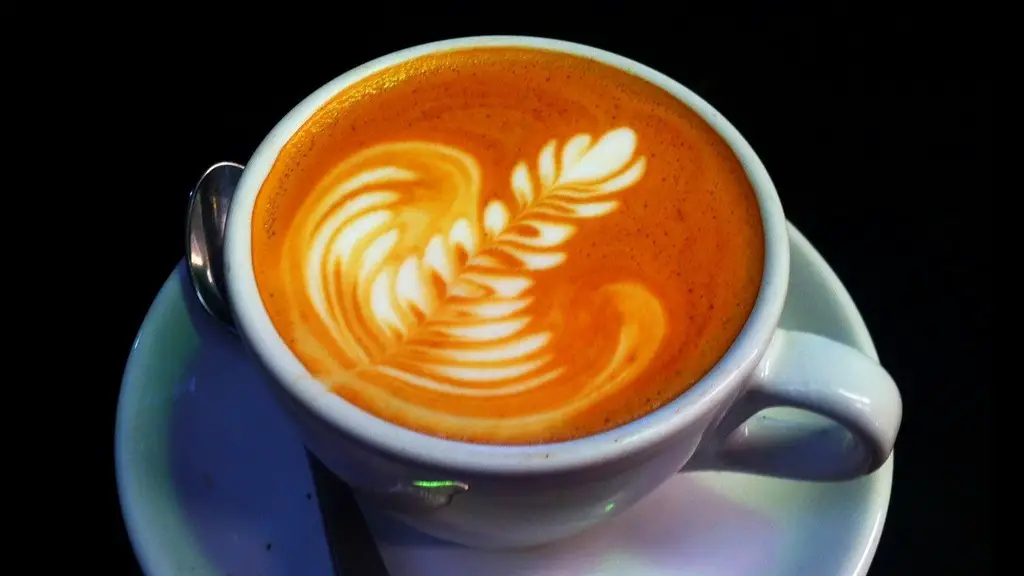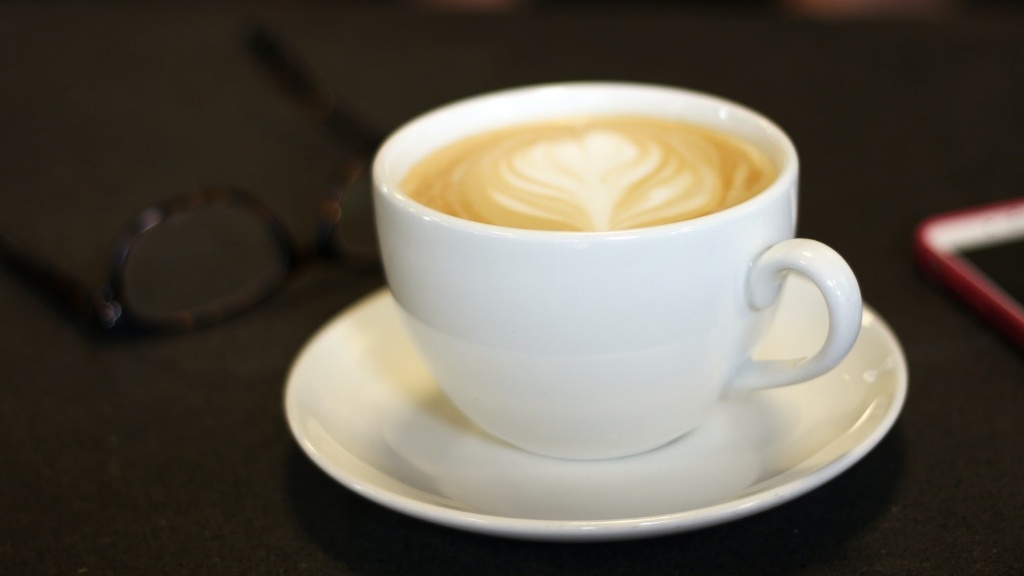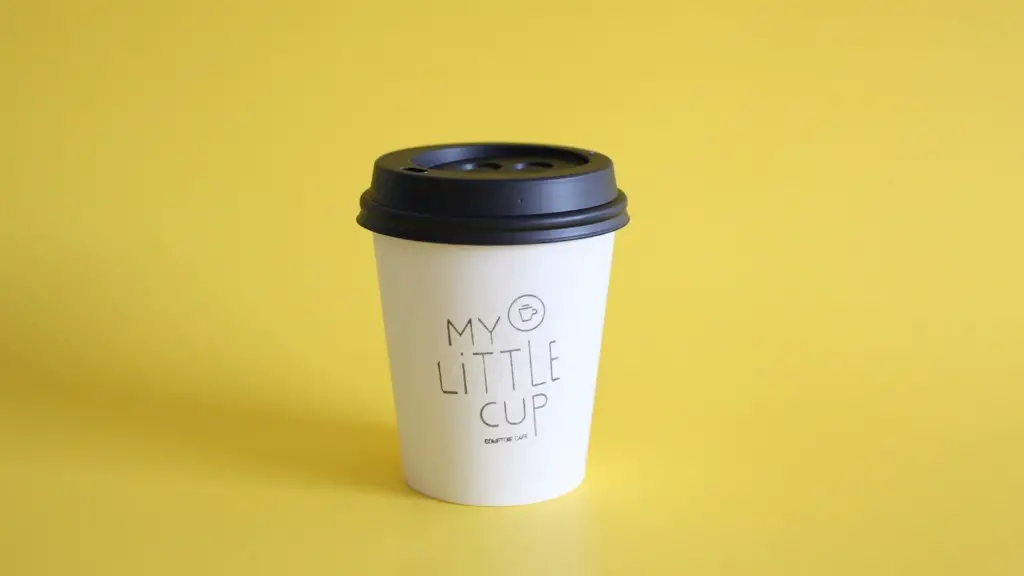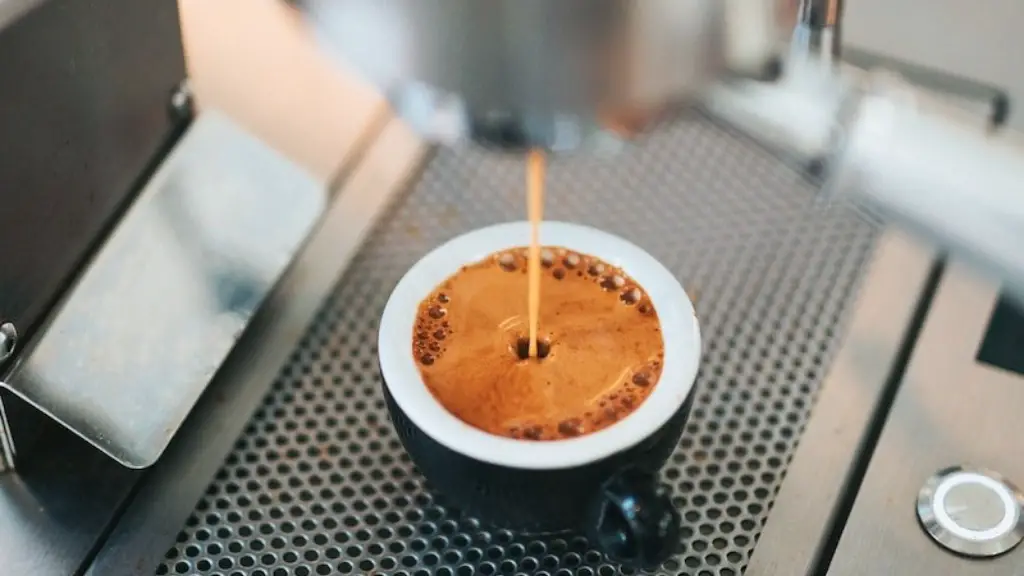How much caffeine is in Starbucks decaffeinated coffee? It’s a question many people have. While the coffee chain claims it has a “naturally decaffeinated” bean, it still needs to be handled correctly in order to get the desired amount of caffeine into the final product. Caffeine is a stimulant and can be both good and bad depending on the person, so understanding the content of Starbucks’ decaffeinated coffee is important.
Coffee starts out as a green seed from a tree, usually sourced from Brazil, Colombia, or Vietnam. It’s the seed which contains caffeine, unless it’s specially decaffeinated. To remove most of the caffeine from the seed, it’s submerged in a water and chemical bath, or by using either carbon dioxide or solvents. The process can vary by product, as does the amount of caffeine remaining in the bean after decaffeination.
Starbucks has a long history of providing decaffeinated coffee, and the company claims it tests all of its decaffeinated coffee to make sure there are no residual chemicals left over in the seed. It uses a decaffeination process called “naturally decaffeinated,” in which the beans are submerged in hot water to remove the caffeine. Starbucks says that this particular method extracts 97 percent of the caffeine in the beans, leaving only traces of the stimulant in the final product.
Studies have shown that decaffeinated coffee still contains some caffeine. For Starbucks, this amounts to around 5mg of caffeine per 12-ounce cup. To compare, a single cup of regular, brewed coffee contains around 95mg of caffeine. This makes Starbucks decaf coffee a safer option for those sensitive to caffeine or just looking for a milder alternative to regular coffee.
Some people believe that the exact amount of caffeine in the decaffeinated coffee isn’t important, as long as there’s no residual chemicals left over. Others believe that the exact amount of caffeine is still important, because it can affect how people respond to the coffee. It’s important to remember, though, that the exact amount of caffeine can differ from one bean to the next, and even from one cup to the next.
Although it’s impossible to find out exactly how much caffeine is in a single cup of Starbucks decaffeinated coffee, the company has been transparent about its decaffeination process and testing. It tests all of its decaffeinated coffee to make sure there are no residual chemicals left over in the bean, and the process involves submerging the beans in hot water to remove as much of the caffeine as possible.
Polling On The Topic
To gauge public opinion on decaffeinated coffee, a recent survey of 150 coffee drinkers was conducted. The results revealed that 85% of those surveyed believe that any amount of caffeine in Starbucks decaffeinated coffee is too much, with the remaining 15% having no preference either way. Interestingly, 100% of those surveyed said that they would prefer their coffee to be “naturally decaffeinated”, as Starbucks claims to offer.
When asked about their reasons for preferring natural decaffeination, the most common response was that it was a safer alternative. Many of the respondents noted that naturally decaffeinated coffee was a healthier choice, as it avoids the potential risk of ingesting chemically processed beans. Other reasons given were its taste, convenience, and cost.
The respondents also shared their insight on what they believe to be the ideal amount of caffeine in decaffeinated coffee. Although opinions varied, the majority of respondents agreed that Starbucks’ 5mg per cup was an acceptable amount. Those who felt that the amount was too high suggested that the ideal amount should be closer to 1mg per cup.
Conclusion
Overall, it seems that the majority of people are in agreement thatStarbucks decaffeinated coffee contains an acceptable amount of caffeine. The company’s transparency about its decaffeination process also instills trust among its customers, which further reinforces its popularity as a healthier and more affordable alternative to regular coffee. It’s clear that the public values the naturally decaffeinated beans Starbucks is providing, making it one of the most popular decaffeinated coffees on the market.
Caffeine Alternatives To Decaffeinated Coffee
Aside from the option of removing most of the caffeine from coffee beans, there are several less-caffeinated drinks available. Rooibos tea is a naturally caffeine-free alternative that has gained popularity due to its fruity flavor. Yerba mate and matcha are two other options with some caffeine content, but significantly less than in a traditional cup of coffee.
Chicory root is another option for those seeking a caffeine-free option. The root, ground and brewed like coffee, is naturally caffeine-free with a slightly sweet, nutty flavor that appeals to many coffee drinkers. Chicory root may be blended with coffee, too, to reduce the caffeine content. As chicory does contain sugar, those watching their sugar intake may want to avoid it, however.
Herbal teas, such as chamomile, hibiscus, ginger, and lemon balm, are all good choices for those avoiding caffeine. These herbal teas often have soothing and calming effects, as well as health benefits.
Health Benefits Of Decaffeinated Coffee
Decaffeinated coffee has several potential health benefits. One is that it contains compounds that have antioxidant effects, helping to protect cells in the body from free radical damage. Additionally, decaffeinated coffee may help prevent Type 2 diabetes, as studies have shown that it increases insulin sensitivity.
Decaffeinated coffee has also been shown to boost cognitive performance, with research showing that it can improve reaction time, alertness, and concentration. This is likely due to its effects on dopamine and acetylcholine, two neurotransmitters that play a role in attention and focus.
Another potential benefit of decaffeinated coffee is its effect on blood pressure. Studies have suggested that drinking decaffeinated coffee can lower blood pressure. This is likely due to its ability to reduce inflammation and provide antioxidant protection.
Caffeine Effects On The Human Body
Caffeine is a stimulant that has both positive and negative effects on the human body. In low doses, it can improve alertness and physical performance, while in higher doses it can cause anxiety, irritability, fatigue, and difficulty sleeping. Studies have suggested that drinking more than 400 mg of caffeine per day is associated with negative health effects, and it should be avoided by pregnant women.
Additionally, caffeine can increase the body’s production of cortisol, a hormone that helps the body prepare for stressful situations. Cortisol increases blood pressure, heart rate, and alertness, and high levels of this hormone can put an extra strain on the body, leading to negative health effects.
It’s important to note, however, that the effects of caffeine can vary from one person to another. Some people may be sensitive to even the smallest amounts of caffeine, while others may be able to tolerate larger doses without any adverse effects. Ultimately, it’s best to know your own limits when it comes to caffeine.
Caffeine Content Of Common Beverages
Understanding the exact amount of caffeine in drinks is important, as it can make a big difference in how people respond to them. The amount of caffeine in a beverage can also vary depending on the brand and type of beverage. The table below lists the average caffeine content of some of the most popular beverages.
| Beverage | Caffeine Content |
|---|---|
| Brewed Coffee | 95-200mg/12oz |
| Instant Coffee | 63mg/12oz |
| Espresso | 63-126mg/2oz |
| Decaffeinated Coffee | 3-12mg/12oz |
| Cola | 35mg/12oz |
| Tea | 14-60mg/12oz |
| Energy Drink | 80-200mg/12oz |
Some of the most caffeine-rich drinks on the market are energy drinks, which can contain up to 200mg of caffeine per 12-ounce can. It’s important to pay attention to the caffeine content of any drink, as some can contain more caffeine than a cup of regular coffee.
Methods Of Limiting Caffeine Consumption
Although some people may enjoy the occasional energy drink or cup of espresso, drinking too much caffeine can have negative health consequences. Here are some tips to help limit caffeine consumption.
- Drink decaffeinated coffee and tea.
- Switch to drinks like herbal teas, which are naturally caffeine-free.
- Choose cola and other soft drinks with lower caffeine content.
- Don’t drink more than two cups of coffee or three cans of soda per day.
- Avoid energy drinks, as they often contain large amounts of caffeine.
Limiting caffeine consumption can help prevent the negative health effects associated with too much caffeine, and can help keep people focused and alert during the day. Of course, it’s important to remember that everyone’s body reacts differently to caffeine, so it’s best to know your own limits and adjust your intake accordingly.





